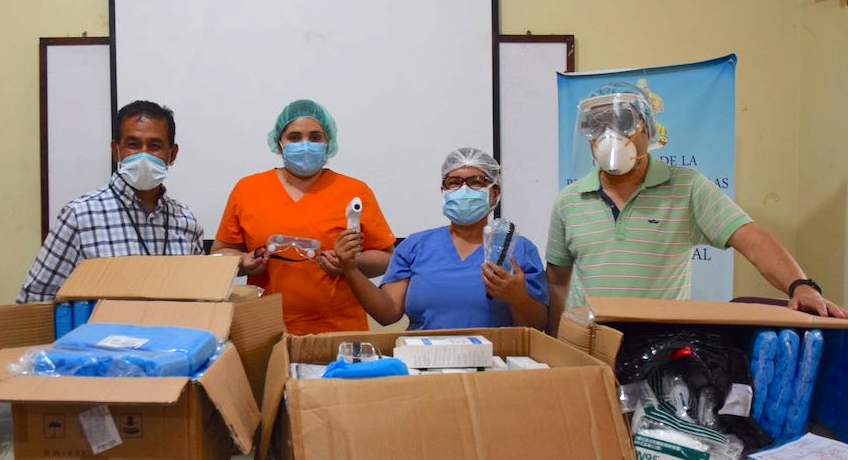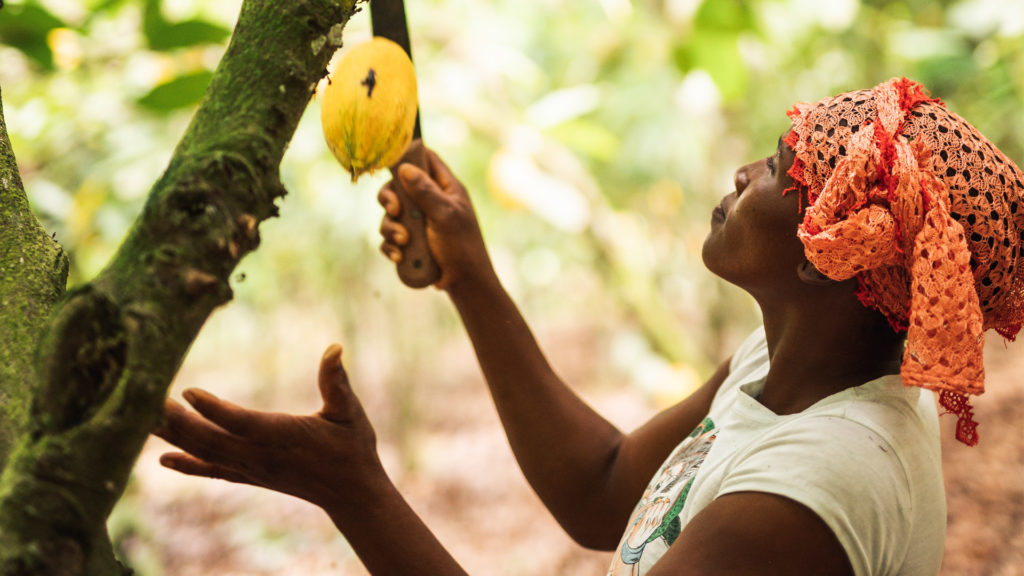Fairtrade Foundation’s CEO Michael Gidney reflects on a tough year and looks forward to a brighter 2021.
‘For too long in this society, we have celebrated unrestrained individualism over common community.’ So said Joe Biden, back in 1987, during his first run for the US Presidency. Thirty years on, his words still ring true. True in the US, where the politics of division that so characterised the last four years have given rise to appalling racial violence. True also across the industrialised world, where ‘unrestrained individualism’ has brought increasing inequality, and long, opaque supply chains making the planet dirtier and people poorer. Globalisation has undoubtedly been a force for so much good, but it has stored up problems for people and planet that have been ignored for too long. The shock of Covid-19 has shown us, more emphatically than any of us could have imagined, that life cannot carry on like this. This year, globalisation has literally been bad for our health.
And yet, 2020 has also shown us the other side. If there is one good thing to come from this tough, tough year, it’s that we’ve recognised more than ever that we are all in this together. We cannot go it alone. That’s why we’ve clapped for carers; why neighbourhood volunteering schemes have seen such support; why donations to food banks have reached unprecedented levels. It’s a response to a crisis imbued with compassion and a determination to act.
Covid-19 has shown us how inter-dependent we are globally. The economic impact of the virus has been huge. People in developing countries who grow and make products for the UK have been particularly hard hit – reduced orders have meant produce has gone unsold and wages unpaid. Millions of farmers growing coffee, tea, cocoa and bananas for the UK have seen their incomes fall and are struggling to feed their families and send their children to school.
This is where Fairtrade comes into its own. A cornerstone of Fairtrade is the requirement for farmers to be organised at a community level. For many that’s been a lifeline – Fairtrade producers have used their premiums to help their communities’ pandemic response. Colombian farmers took the fight against Covid-19 to the streets using banana disinfectant, spraying the roads of their local towns. Flower growers in Kenya used Fairtrade-funded sewing machines to sew masks for the local community. Many producer groups organised food distribution for vulnerable people in their communities.

Fairtrade producers have proved to be more resilient, better able to bounce back. Important for the families involved, but also provides us in the UK with the products we buy every day.
Social good can coexist with shareholder return
Many companies have rallied round. The Co-op has played a lead role both in protecting producers overseas and vulnerable people here. Coupled with UK government funding producers in west and east Africa have received extra support, working with Marks & Spencer, Tesco, Co-op, Mondelez and MM Flowers.
We’ve also seen standout commitments from companies determined to lead the way in ensuring a living income for farmers. Tony’s Chocolonely and Ben & Jerry’s, for example, will pay significantly more than the Fairtrade Minimum Price, helping farmers become even more resilient. This is hugely significant. It shows that another way of trading is possible. This is a wonderful note of optimism for the future and a challenge to other businesses to do better, that social good can coexist with shareholder return.
None of this is possible without Fairtrade’s extraordinary public support, which if anything has grown stronger, perhaps because of that sense of togetherness. Over 300,000 people signed Yorkshire campaigner Joanna Pollard’s petition about KitKat’s Fairtrade withdrawal, mentioned in the media and in parliament. Huge numbers of teachers used Fairtrade Schools’ resources and, throughout lockdown, Fairtrade communities held virtual events. I recently attended a Town Council meeting where members were considering a resolution to become a Fairtrade Town. One councillor said: ‘We’ve declared a climate emergency, we care about where our produce comes from, so this is a no-brainer for me.’ That sense of the importance and necessity of Fairtrade is reflected in our latest consumer survey, where active choice – shoppers choosing Fairtrade – is higher than ever in our history. In this year of all years this really matters. Thank you to everyone who has taken home a Fairtrade product.
Fighting for Climate Justice
Covid-19 has shown why farmers need to be valued and fairly paid. The same is true as we face future challenges like extreme weather damage – if we don’t invest in farmers, we’ll all be more vulnerable. This autumn two hurricanes have swept through Central America, hitting thousands of Fairtrade farmers very hard. Action is needed now.
2021 will see our new global strategy put the fight for climate justice front and centre. Fairtrade is involved in plans for Glasgow’s COP26 – Mary Kinyua, Chair of the Fairtrade Africa Board, recently spoke among Heads of State at the Climate Ambitions Summit. Watch Mary Kinyua’s speech at the Climate Ambition Summit
Farmers are at the front line of the climate crisis, but they will not be able to transform their land and their practices if they are paid poverty wages. Fairtrade Fortnight 2021 will focus on the reality for farmers of the double-whammy of the climate crisis and poverty, and how all of us can play our part.
A brighter 2021
As we look forward to a brighter 2021, what kind of world do we want to see? I hope this is the opportunity to reset our economy to Build Back Fairer, and this means two things:
- Remembering how much we depend on producers in low-income countries for the food and products we buy every day. It’s scandalous that they should toil in poverty so we can have cheap products. We rely on farmers every day; shouldn’t we then treat them as our partners and ensure they are able to earn a living income?
- Committing as consumers to join the dots. If we are worried about the climate crisis, about child labour, about exploitation of women around the world, about racial injustice, we must make the link to what we buy. Poverty is the missing link in so many corporate ‘sustainability’ schemes. Fairtrade aims to tackle the cause, where others address the symptoms. We have the power as consumers to bring about amazing change.
There is huge value in working together. Fairtrade producers have shown it this year in how they’ve supported their communities. We’ve seen it in the million acts of kindness for others through the pandemic, here and abroad. We can see how we can make trade work for all of us. 2021 is a year to be hopeful, and to carry these stories with us.
Twenty years ago, celebrating her murdered husband’s life, Coretta Scott King said: ‘The greatness of a community is most accurately measured by the compassionate actions of its members.’ Covid-19 has shown us just how we much we can achieve as a community. Now is the moment to choose the world you want.
Get Involved
Find out how you can get involved in Fairtrade Fortnight 2021
Keep up to date with the latest Fairtrade news, sign up to our newsletter
